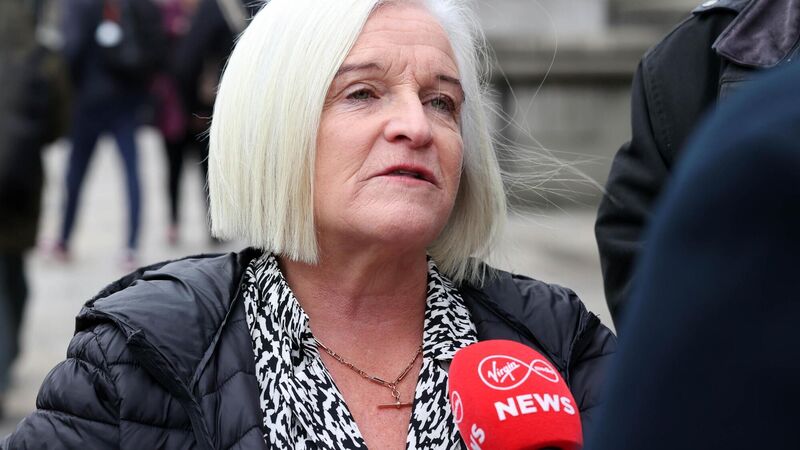'Mothers want to hear they are innocent victims of thalidomide scandal'

Spokesperson for the Irish Thalidomide Association Finola Cassidy at Government Buildings last week where they met Taoiseach Micheál Martin seeking full support for justice for survivors. Picture: Sam Boal/Rollingnews.ie
The Taoiseach’s commitment to open disclosure in the health services must also apply to survivors of the thalidomide scandal in Ireland, sufferers have urged.
A protest held on Thursday marked 61 years since morning sickness medicines containing thalidomide were withdrawn from the international market due to catastrophic damage caused to babies. However, syrups continued to be sold in Ireland after this.










